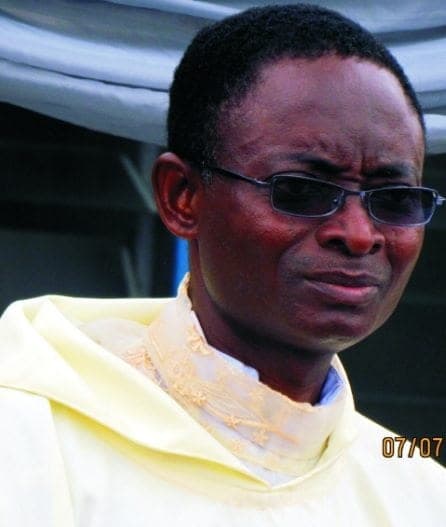In Africa’s most populous nation, Catholic leaders in late May found themselves struggling to do two things at once: To maintain the Church’s role as a national voice of conscience, while at the same time protecting their own vulnerable personnel.
On May 21, Bishop Felix Femi Ajakaye of the Diocese of Ekiti in western Nigeria appealed for the release of a Catholic priest and two Catholic nuns, whom had been kidnapped in separate incidents. The religious sisters in question were later rescued by police.
In a statement released to Nigerian media, Ajakaye said that Father John Adeyi, the Vicar-General of the Diocese of Otukpo, had been in captivity since Sunday, April 24, taken by unidentified assailants. Adeyi, who’s the first priest from the diocese, which was created in 1995, was returning from saying Mass at a parish outstation when he was grabbed.
Ajakaye also said that two nuns, Sisters Perpetua Apo and Bukola Familade, along with their driver, Zwugwa Zibai, were also kidnapped on Thursday, May 12, after their car broke down on an area highway.
The bishop demanded that the Nigerian government step up its efforts to apprehend the culprits in such incidents.
“We must stop chasing the shadows,” Ajakaye said.
“Whenever somebody is abducted, it is sickening to hear state governors prepared to give millions of naira [referring to the Nigerian currency] to anybody or group with any information on the whereabouts of the abducted persons,” he said.
Recently the Governor of Benue State where Adeyi was taken, Samuel Ortom, offered a reward of 5 million naira, a little over U.S. $25,000, for information leading to the priest’s safe return.
He also appealed to the kidnappers to release their victims.
“They should release them so that they can continue their humble service to humanity, as directed by God,” Ajakaye said.
The two sisters were rescued by a police intelligence unit the day after Ajakaye released his statement, but the fate of Adeyi remains unknown.
Nigerian observers say that kidnapping is a chronic threat in the country, including for church personnel. In some cases, people perceived to be linked to groups with resources are taken by criminal bands simply for profit; in other cases, Christian personnel are also exposed to the risk of abduction and torture at the hands of Boko Haram, the country’s radical Islamic terrorist group.
In the same period of time, Catholic leaders were also scrambling to try to avert national strikes that threaten to further paralyze what’s already considered an often dysfunctional economy, despite the fact that Nigeria is the largest oil producer in Africa and the 13th largest in the world.
Although Nigeria is a major oil producer, the country only has the capacity to refine 40 percent of its domestic requirements, meaning it has been paying over $200 million a month to import liquid fuels.
In what was described as a budget-balancing measure, the Nigerian government recently suspended subsidies on domestic fuel sales, causing spikes in prices estimated at up to 67 percent.
Labor unions have threated across-the-board work stoppages and strikes, causing the Church’s communications director in the Archdiocese of Abuja, the national capital, to appeal for restraint.
“This is a critical moment. I have looked at Venezuela. Venezuela is a Latin American country, they depended on oil, and right now as we speak, Venezuelans are queuing up to buy sugar, milk, rice, diapers for children, and they ration them,” said Father Patrick Alumuku, stressing that declining oil revenue is a global phenomenon.
Alumuku was speaking at a May 17 press conference to mark the 35th anniversary of his priestly ordination, and also the release of his autobiography, titled Candle Wax.
“I think we have to be able to weigh all of these situations that we find ourselves in and move forward,” he said. “We should reflect appropriately before the labor unions embark on their strike.”
While it may seem unusual for a Catholic spokesman to comment on a proposed labor action that doesn’t directly involve the Church, in much of sub-Saharan Africa it’s customary for religious figures to address public policy questions explicitly.
In part, that’s because churches and other religious venues are often seen as the primary venues in which civil society takes shape.
















